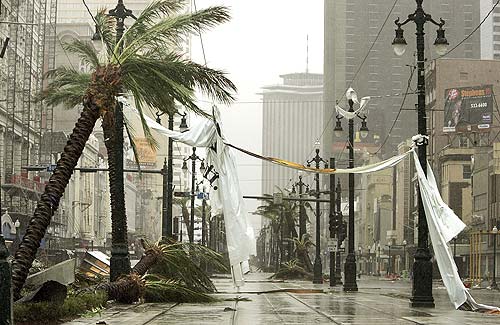The Malthusian Prophesy
 Courtesy of Tim at The Psy-Fi Blog
Courtesy of Tim at The Psy-Fi Blog
Doubting Thomas
Of the great triumvirate of men who invented the concept of economics Thomas Malthus is the one who’s received the bad press. Admittedly this is because, unlike Adam Smith and David Ricardo, his most famous prediction – that human population growth was ultimately limited by the capacity of the environment to produce enough food to support it – has so far been wrong. Although only by a few billion mouths or so.
However, the failure of the Malthusian Prophesy can only be temporary if human growth continues unabated. The Earth’s an island and we’re marooned. Somehow, somewhere, sometime human population growth will run up against a lack of sustainable resources. Worryingly our best hope of avoiding catastrophe probably lies in the dismal science of economics, a strange superhero if there ever was one.
Population Economics
Malthus developed the concept of population economics in An Essay on the Principle of Population, first published in 1798 – arguing that the resources of the world were limited and when the immovable feast of famine met the inevitable growth of human population it would be the latter that gave way. He’s perhaps most famous these days for providing Charles Darwin with a vital notion – Malthus’s idea of individuals fighting for limited resources was the final link in the chain that led to the concept of natural selection and evolution.
In Malthus’s time England was an agrarian society, seemingly timeless and unchanging – the size of population had barely altered in three hundred years. What he couldn’t possibly know was that agricultural improvements were about to kick into train a population explosion with barely a famine in sight. Well, apart from in Ireland. And Scotland. And amongst the poor. But otherwise no-one went hungry.
Although human economic growth is dependent on multiple interlocking factors the necessity of improved food production is a critical one. Consider that in a subsistence society each person can only produce enough food to feed themselves: in such a world there is no excess labour to do anything apart from farm. In Malthus’s time the ratio was roughly 1 to 2 – it took one person to feed two, although the number was already rapidly changing as the population exploded. Today it’s closer to 1:100 and most of us don’t know which end of a chicken the egg comes out of.
The Agricultural Revolution
A set of inventions triggered the explosion in food production – new ploughing technology, the seed drill, improved fertilisation, crop rotation, better livestock breeding, increased imports and so on. In addition in both Holland and England financial revolution meant easy access to the capital needed to spark a boom in canal building: the railroad wasn’t far behind. Rapidly improved transportation networks meant that food could be moved from where it was produced to where it was consumed. As people moved off the land towns and cities sprang up and urbanisation fed the wellsprings of the industrial revolution. Economic growth suddenly accelerated and has carried on ever since, leading inevitably to the rise of the daytime chat show; don’t tell me all progress is good.
So just as Malthus was making his prediction the age-old link between food prices and population broke – the increase in population didn’t lead to an increase in food prices, bringing with it a limit to growth. The lesson we’ve drawn from Malthus’s discomfiture, and other dire warnings since, is this: human ingenuity will overcome all problems. There’ll be food for everyone, forever.
The End is (Nearly) Nigh
However, every generation or so some Jeremiah pops up predicting a global food shortage which then promptly doesn’t happen to those of us in First World societies. Famine and starvation occur, but somewhere else. Only trouble is one day one of these doomsayers will be right unless we prepare ourselves.
The problem with threats of catastrophe is that people tend to discount the probability of them occurring to zero. We’ve seen this before with stockmarkets – it’s Disaster Myopia in action once again. The probability of a rare but disastrous event is rated at zero because people cannot conceive of it actually ever really happening. Unfortunately tsunamis, earthquakes, meteor strikes, mass flooding due to hurricanes and food supply chain failures can and do occur. They’re just very, very rare. The consequences of such events are massive: ask the inhabitants of New Orleans.
Environmental Economics
The argument about the Malthusian Prophesy is all about economics. The only alternative to continued, unabated human population growth is recognition of the implications of our use of the environment and the only way we have of assessing this is through the rather dubious concepts of economics. The study of environmental economics is attempting to fill this gap and it’s beginning to have an effect on the way the world and its companies are accounting for environmental use. We’ll likely see it increasingly dominate investment agendas throughout the twenty first century.
At the heart of environmental economics is something we’ve seen before: the failure of markets. Hardin’s Tragedy of the Commons is a simple enough example of the type. So, for instance, a company that doesn’t need to account for the impact of pollution will pollute freely – the impact on the company is small but the cumulative effect of millions of polluters on the world is large. The global depletion of fish stocks is another example of how free and unfettered markets can work against the interests of the majority.
Trying to figure out how to price these factors into economic models and then apply these models to the market is a huge problem. Worse still, globalization creates a huge headache for everyone, because it only takes one country to ignore the issue to set in train a race to the bottom as everyone tries to exploit natural resources. Just ask the whales. If you can find any.
Free Markets Aren’t Free For All
This kind of wishy-washy environmental nonsense tends to set the teeth of ardent free-marketeers on edge. However, the superiority of Adam Smith’s invisible hand is not guaranteed in all circumstances. Indeed history tells us that the most vocal proponents of free markets are those who have most to gain – the British used naval force to “open” the Chinese market to opium traders while it’s claimed that the US used the Breton Woods institutions to exercise economic hegemony over supplicant states. It’s been ever thus.
Although the only prediction anyone can confidently make about the future is that any prediction will be wrong, an increase in environmental concerns seems assured. A growing scientific consensus on global warming is slowly forcing governments to address the issue, whether they believe it or not. Only a reduction in population can stem this particular tide.
Such a reduction isn’t impossible – rising economic wealth generally leads to decreasing birth rates, but that raises the question of whether we have the resources necessary to lift the world’s poor out of their poverty. That too seems unlikely at present, although demographic trends towards low birth rates in the First World may mean that the export of capital or the import of labour amerliorates the problem.
Island Earth
Note that none of this has to be true for it to have an impact on our stockmarket investments. It’s sufficient that enough people believe it. There are multiple options for change – increased regulations, various quotas, taxes on pollution and new sorts of property rights are all possibilities. Environmental economists will be critical to picking a path through the moral minefield of perverse incentives that this will create.
In his book “Collapse” Jared Diamond looks at the differential results of similar societies some of whom died out due to the decisions they made. At some point, on some fateful day, an Easter Islander hefted an axe and chopped down the last tree thus condemning the occupants to a marginal existence on the island with no hope of escape. The downward spiral of a subsistence society into cannibalism was inevitable from that point onwards. The islanders were caught in Malthus’s trap.
Looked at from space the Earth can be seen for what it is: a fragile and beautiful jewel in a black and white universe. For better or worse it’s our Easter Island. Given how useless economists have been at predicting the behaviour of a free market economy it’s a savage irony that we’re now reliant on them to stop the man with the axe. Heaven help us.
Invest In The Four Elements
Anyone looking for the dominant twenty first century investment theme will probably struggle to get past environmental concerns. In fact we need to go back way beyond Thomas Malthus to find our inspiration in the Greek philosopher Empedocles who argued that the world was composed of four elements.
So for the future look to Earth, Fire, Air and Water: reliable food production, sustainable energy, pollution reduction and access to water supplies.
Related Articles: The Tragedy of the Financial Commons, Copper at Morewellham Quay, It’s Not Different This Time


